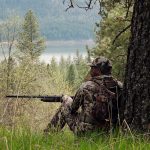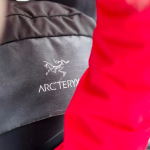The political scene in the Bicycle, Outdoor, and SnowSports industries has never been more polarized with strong and conflicting opinions expressed, sometimes violently, from left and right wing advocates. Thanks in large part to the politically neutral and firm guidance set by OIA, the divisive nature of this years political scene was addressed and important issues that needed full industry support were brought to the forefront.
This is not to say that OIA was the only industry association stepping up to the plate in Washington. Both America Bikes and Bikes Belong made significant contributions to helping the industrys voice be heard and keeping their members informed about new developments.
America Bikes set its sights on the Transportation Enhancement Act in 2004, and in particular TEA-3, TEA-LU and SAFETEA, which provide funding for bike lanes, greenways, and safety funding for cyclists. According to the groups year-end update, “there are clear signs that our decision makers are increasingly sympathetic to the America Bikes Agenda.”
America Bikes was instrumental in procuring safety funding for bicyclists & pedestrians proportionate to their involvement in accidents. This was called “a major step forward in securing a safer cycling environment.”
Both SAFETEA and TEA-LU HR3550 include provisions for Safe Routes to School, securing funding of up to $100,000,000. As well as this new stuff both bills mention recreational trails, planning and other issues that can help make America more bicycle friendly. Additionally, Septembers extension increased the pot of money available for bike and pedestrian issues.
Neither of these bills has been passed yet, but the Organization is confident that when work begins in the 109th Congress, it will be pushed through. “The schedule for renewal is driven by the May 31, 2005 deadline set in the last extension law so we are expecting Congress to start on this bill straight way,” the group said in their update.
OIA had three major policies that it focused on for 2004 – looking to increase access to outdoor recreation which will lead to increased physical fitness and reduced obesity of the American people; working toward reduced health care costs for outdoor businesses; and to continue to focus on protecting backcountry recreation opportunities for outdoor enthusiasts in conjunction with the Business for Wilderness program.
The Childhood Obesity Reduction Act will, more than likely, have more support with the new Republican majority Congress. The Bill was introduced by Senate Majority Leader Bill Frist and is co-sponsored by four other Republicans and two Democrats in the Senate. In the House of Representatives it has one Republican and one Democrat sponsor.
The Small Business Health Fairness Act of 2003 would establish rules for association health care plans, permitting trade organizations, like the OIA, to offer health insurance to its members. This Act has passed the House and currently has 10 sponsors in the Senate, nine Republicans and one Democrat.
Both of these bills are likely to pass in the near future, checking off two of the OIAs three goals for the year. The preservation of wilderness areas may be a more daunting task.
This past July, the Federal Government moved to replace a Clinton moratorium on building roads in previously undeveloped portions of the national forest system with a plan that generally allows road building unless the host state objects and submits its own plan for protecting in-state roadless areas.
Additionally, under the banner of energy independence, the U.S. executive branch is pushing congress to allowing oil and gas exploration in nearly all roadless and wilderness areas short of national parks.
This is not to say that this goal set forth by OIA is a lost cause, but as long as the public can be led to believe that the minute amounts of petroleum on U.S. soil can save the country from its dependence on the middle east, then it will be an uphill battle. OIAs only weapon against this is the argument that sustainable recreation-based economies can work.
In support of these three goals, OIA also held its annual Capital Summit which was attended by 45 of the top executives in the industry. The group launched the “Get Outdoors Act” with Congressmen George Miller (D-CA) and Don Young (R-AK) and establishing key relationships on Capital Hill. OIAs President, Frank Hugelmeyer, told BOSS that it was “without a question, the finest week of work weve done in D.C.”
Later in the year, in a move not sanctioned by the OIA, several outdoor executives gathered in Oregon to give their endorsement to the democratic presidential ticket. While the endorsement did garner national media attention, it also received criticism from supporters of both parties. Many people in the industry feel that this alignment with the democratic party could add a negative note to future dealings in Washington D.C., especially with the new republican majority.















